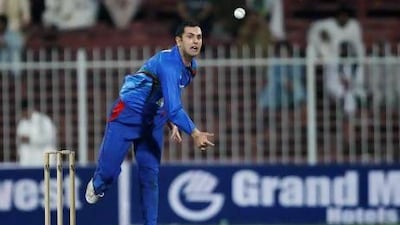When considering the true icons of captaincy from cricket's rich history, some names are inescapable.
Douglas Jardine. Tiger Pataudi. Mike Brearley. Imran Khan. Mark Taylor. Steve Waugh. For all their varying achievements in their respective disciplines on the field, each was an unalloyed triumph as a leader.
But what of Nawroz Mangal? Ever heard of him? Those who prefer their cricket from the mainstream conceivably may not have done.
Mangal is the man who has been responsible for guiding a volatile yet remarkably talented set of Afghan cricketers from the ravages of war towards the sport's highest echelon. Point A to point B has never been quite as varied for any captain in the sport.
Over the past decade he has been the one constant behind a barely credible rise hindered by the sort of extra-curricular challenges that none of Brearley, Pataudi, et al would have had to consider, and a cricket administration in a perpetual state of chaos.
Mangal's statistics in his primary role as a batsman have been relatively modest, at least in recent teams, yet the grip he has held over his players has always seemed absolute.
In Out of the Ashes, the film which charts Afghanistan's ultimately unsuccessful attempt to qualify for the last World Cup, there is a scene which gives a clue to his method.
At a taut point during a run-chase in Jersey - yes, that is how far they have come - the team's then coach, Taj Malik Khan, is beside himself with nerves and his mood is in danger of bleeding into the players.
Mangal, the captain and therefore, you may think, answerable to him, places a firm hand on his coach's shoulder, tells him to calm down and sit. It does the job.
Now Afghanistan are taking their first steps towards life after Mangal in their series of matches with Scotland, which continues with the first of two World Cup qualifiers today.
It is tempting to think that whoever follows Sir Alex Ferguson into the hot seat at Manchester United will have lesser shoes to fill.
Mohammed Nabi, Mangal's long-time understudy, has not made a bad start. In his first job in office, his side whitewashed Scotland in the Twenty20 series which preceded today's one-day international.
"It has not been too difficult because for the last 10 years a lot of us guys have been playing together," Nabi said.
"The communication is very good within our team and it doesn't matter who is the captain. I was the vice-captain for two years under Nawroz, and that was good experience for me."
Judged by their demeanour on the field, an uninformed observer may still believe Mangal to be the captain.
Nabi, as one of the outstanding fielders in a side not known for excelling in that discipline, can often be found at cover-point or, during the slog overs, at long on.
It is difficult to captain from there, and Mangal is often the closest to the bowlers, offering advice and direction the field. "Sometimes he guides me in the field and I know he has a lot of knowledge," Nabi said. "He is helping me."
With free admission for today's match, Afghanistan's continuing attempts at succession planning might be watched by another sizeable crowd.
It is something their players now take as a given, while Scotland's inexperienced side are still making their way in this atmosphere.
"The guys need to deal with the pressure a bit better and you only get used to that by playing in these big matches," said Gordon Drummond, the Scotland captain.
Follow us


